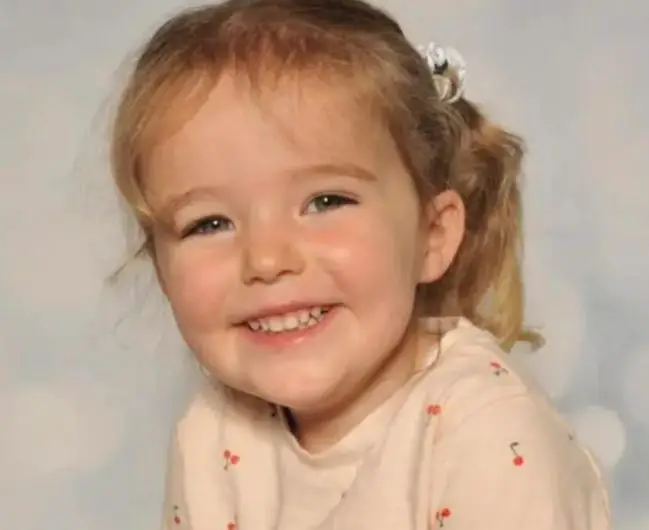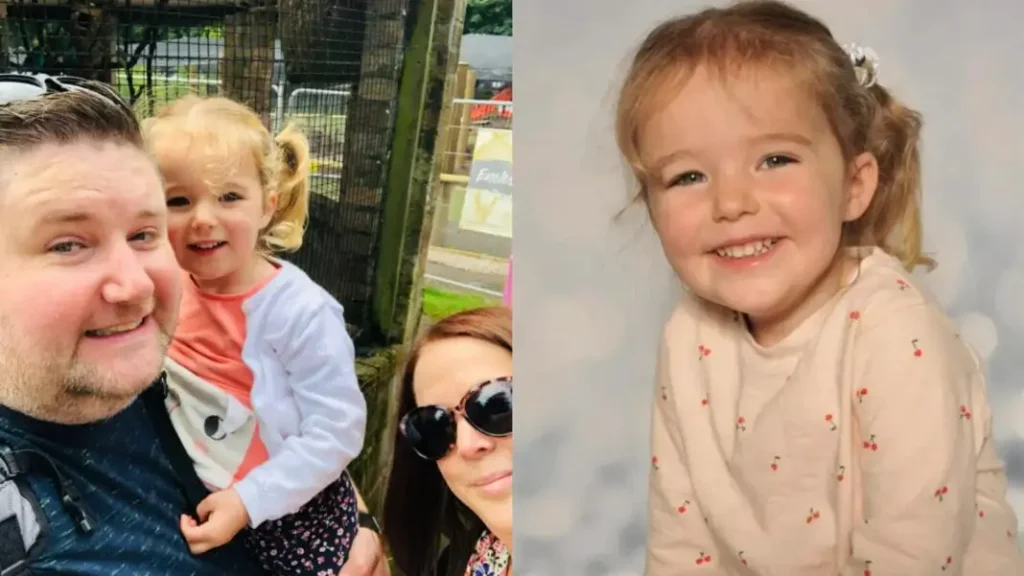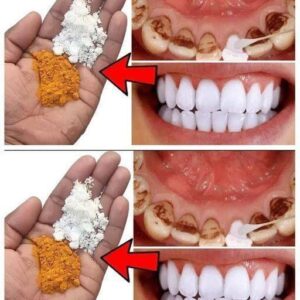Ryleigh Hillcoat-Bee’s parents are devastated and outraged after learning that their three-year-old daughter’s life could potentially have been saved. Ryleigh suffered from rhabdomyolysis, a rare condition that breaks down muscle tissue, leading to potentially fatal complications. The disorder affects approximately one in 200,000 people in the UK. Ryleigh died just three months after being discharged from Blackpool Victoria Hospital, where she had been treated for five days.
A recent coroner’s inquest, led by Alan Wilson for Blackpool and Fylde, uncovered significant failures in Ryleigh’s care. According to Wilson, medical staff missed “red flags” in her condition, which, if properly addressed, might have led to a timely diagnosis. The coroner reported that doctors discharged Ryleigh despite her worsening mobility issues, which should have signaled a potential neuromuscular problem. Wilson criticized the decision to release her without further evaluation, describing the oversight as a missed opportunity to save the young girl’s life.

The hospital initially ran tests, and her blood results revealed abnormally high levels of Creatine Kinase, an enzyme associated with muscle damage or disease. Despite this key finding, doctors diagnosed Ryleigh with a chest infection or hepatitis, missing the signs of rhabdomyolysis. During her hospital stay, Ryleigh showed concerning symptoms—she was noticeably weak, slow, floppy, and lethargic—but these indicators were not sufficiently explored, leading to her premature discharge.
Medical negligence attorney Diane Rostron, who is representing Ryleigh’s family, emphasized that the hospital had been advised to consult with a neuromuscular specialist. According to Rostron, if Blackpool Victoria Hospital had sought specialist input, Ryleigh’s rhabdomyolysis could have been diagnosed, giving her family the chance to pursue further treatment options. Rostron voiced her disappointment, stating, “The hospital was given clear advice… to get specialist advice from a neuromuscular specialist.” She believes that had the correct steps been taken, Ryleigh’s family would have been aware of the condition affecting their daughter, potentially opening doors for intervention that could have saved her life.

The tragedy has left Ryleigh’s family and their community grappling with grief and questions. As they process this loss, the hope is that the findings of the inquest will help bring accountability and prevent similar cases from happening to others. The coroner’s request for evidence from Blackpool Teaching Hospitals NHS Trust doctors highlights the need for a thorough investigation to understand the breakdown in Ryleigh’s care.
Our heartfelt condolences go out to Ryleigh Hillcoat-Bee’s family. In the wake of this tragedy, we hope they may find solace and closure and that Ryleigh rests in peace.





